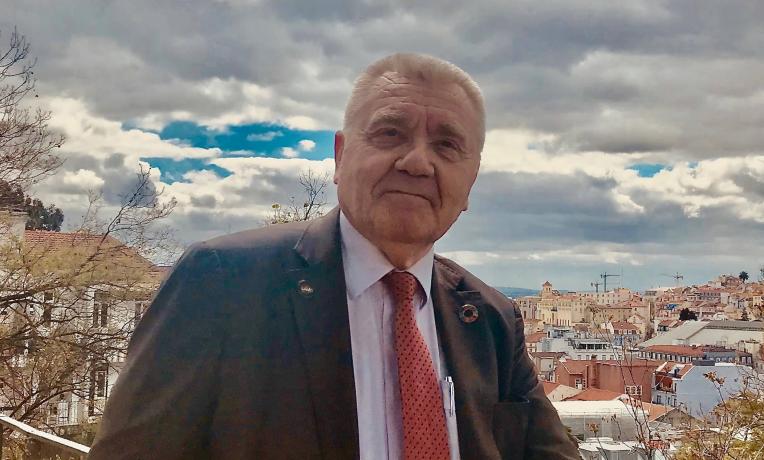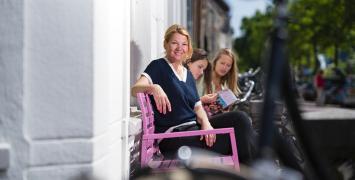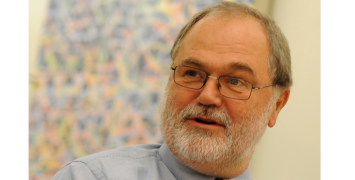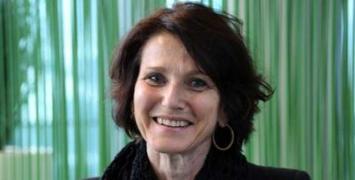Facing challenges at a critical time: Jean-Pierre Bourguignon back at the ERC

As Germany has just taken over the Presidency of the EU, let me take you back to the ERC’s launch ceremony in Berlin in 2007, during the previous German EU Presidency. Then, Chancellor Angela Merkel stated that “The ERC could become a Champions’ League for research and we have to accept that research needs autonomy and freedom.” Many agree that her prophecy has become reality, and I believe that “autonomy and freedom” lie indeed at the heart of the ERC’s success. After thirteen years, the ERC is recognised as an essential pillar of the European research ecosystem and I would like to pay tribute to its founders. Designed by researchers for researchers, it pushes European research forward by encouraging renewed efforts, inspiring reforms, and attracting investments across Europe. By giving the brightest minds the freedom to push the frontiers of our knowledge, it has become a model worldwide and helps the EU up its game at a global level in these challenging times. The goal of the ERC is even more relevant today than it was when it was founded.
The ERC’s many achievements and the great respect I have for the ERC Scientific Council made it impossible for me not to agree to come back at the helm of the ERC when asked. I am honoured by the continued trust of the ERC Scientific Council and Commissioner Mariya Gabriel. I feel a sense of duty to hold the fort until the next ERC President takes office, after a thoughtful and transparent selection process overseen by the European Commission. After six years at the ERC, I started my new life with other assignments, the writing of books (I could finish one!) and spending more time with the family, but I will have to suspend those for now, as I am aware that I am accepting this unexpected challenge at a very critical moment.
It is critical for several obvious reasons. Europe, and the World, are in a crisis and we do not know where the ongoing pandemic will take us next. We have come to get used to great uncertainty. But one thing is crystal-clear - science is needed more than ever and has taken centre stage in an unprecedented way. We can see how essential it is for the scientific method to be properly appreciated, as it is what gives research its strength and relevance. This responsibility must occupy us more than it has in the past, and of course, this also touches education from a very early age.
That is why it is all the more difficult to come to terms with the outcome of the recent European Council summit. Our national EU leaders did, in the end, make a giant leap forward in reaching a budget deal for the period 2021-2027 containing some truly new tools, but their ambition for research has left us and many others disheartened. This part of the deal means in real terms that there would be no increase to the core research and innovation budget of the EU for the first time ever. I know the budget negotiations are not over yet and we place hopes in the European Parliament, which has expressed high ambitions for the Horizon Europe Framework Programme, and that still needs to have its say.
Our message is that Europe can not only survive when faced with tough international competition, but also thrive if it invests in far-reaching science. We must enter the race to develop the latest scientific knowledge and technologies head on. This is how Europe can become a beacon and lead the way when faced with unprecedented challenges. And it can do so only if it shows very concretely its trust in the new generations, giving them the right tools and perspectives.
When dealing with Horizon Europe, a seven-year programme, one needs to get away from the urgency mode that the pandemic rightly triggered. This means to decide to invest in research and innovation in a balanced and forward-looking way. In order to be prepared for unexpected challenges and crises, whether in the field of health, climate change or something else, bottom-up frontier research is paramount. Focusing too much on short-term results will stifle the future seeds of innovation. Many of the key technologies that can kick-start the European economy and boost the green and digital transitions come from public funding for long-term research. Indeed, so many potential vaccines and treatments for COVID-19 are now being developed at record speed, which points to the groundwork that had already been carried out over many years – driven by the sheer desire to understand. The ERC itself provides a good view on that: more than 150 projects relevant for the pandemic were supported by the ERC already before it started. This cutting-edge research has been contributing substantially, thanks to the fact that ERC grantees have the freedom to follow their scientific curiosity and instinct. Other ERC grantees have reoriented their running projects towards COVID-19, and this was made possible thanks to the flexibility of ERC grants.
With the ERC, Europe has built a research funding organisation that is recognised around the world as a great achievement - let us nurture and support it. I look forward to ushering in Horizon Europe and will do my utmost to uphold the ethos of the organisation that is so close to my heart. But, in the present circumstances, we have some serious work ahead of us.
More info





